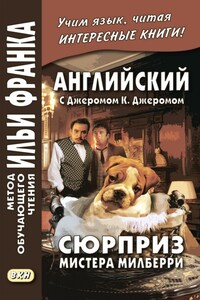There were three of us in the smoke-room of the ship – me, my very good friend, and, in the opposite corner, a shy man, the editor, as we knew out later, of a New York Sunday paper.
My friend and I were talking about habits, good and bad.
“After the first few months,” my friend said, “it is as easy to be a saint as to be a sinner; it becomes a habit.”
“I know,” I interrupted, “it is as easy to jump out of bed early in the morning as to say 'All Right,' and turn over for another five minutes of sleep, when you have got the habit. Not to swear is as easy as to swear, if you make a custom of it. A piece of bread and water is as delicious as champagne, when you got used to its taste. It is only a question of making your choice and getting used it.”
He agreed with me.
“Now take one of my cigars,” he said, pushing his open cigar case to me.
“Thank you,” I replied quickly, “I'm not smoking during this trip.”
“Don't be afraid,” he answered, “It was just an argument. One of these cigars would make you ill for a week.”
I agreed.
“Very well,” he continued. “As you know, I smoke them all day long, and enjoy them. Why? Because that is my habit. Many years ago, when I was a young man, I smoked very expensive Havanas. It was necessary for me to buy cheaper tobacco. I was living in Belgium and one friend showed me these. I don't know what they are made of – probably cabbage leaves soaked in guano[1]; they tasted to me like that at first – but they were cheap, they cost me three a penny. I decided to like them, and started with one a day. It was terrible work, I admit, but as I said to myself, nothing could be worse than the Havanas themselves in the beginning. Before the end of the month I could think of them without disgust, at the end of second I could smoke them without discomfort. Now I prefer them to any other brand on the market.”
He leant back and puffed great clouds into the air, filled the small room with a terrible smell.
“Then again,” he continued after a pause, “Take my wine. No, you don't like it.” (my face betrayed me.) “Nobody does, no one I have ever met. Three years ago, when I lived in Hammersmith, we caught two thieves with it. They opened the cupboard, and drank five bottles of it. A policeman found them later, sitting on a doorstep a hundred yards from my house. They were too ill and went to the police station like lambs, because he promised to send the doctor to them the moment they were safe in the cells. Since then I leave a bottle on the table every night.
Well, I like that wine. I drink several glasses, and I feel like I'm a new man. I took it for the same reason that I took the cigars – it was cheap. It is sent from Geneva, and it costs me six shillings a dozen of bottles. How they do it I don't know. I don't want to know.
“I knew one man,” my friend continued, “All day long his wife talked to him, or at him, or of him, and at night he fell asleep to the rising and falling rhythm of what she thought about him. At last she died, and his friends congratulated him, they thought that now he would enjoy peace. But it was the peace of the desert, and the man did not enjoy it. For twenty-two years her voice had filled the house, penetrated through the conservatory, and floated into the garden.














